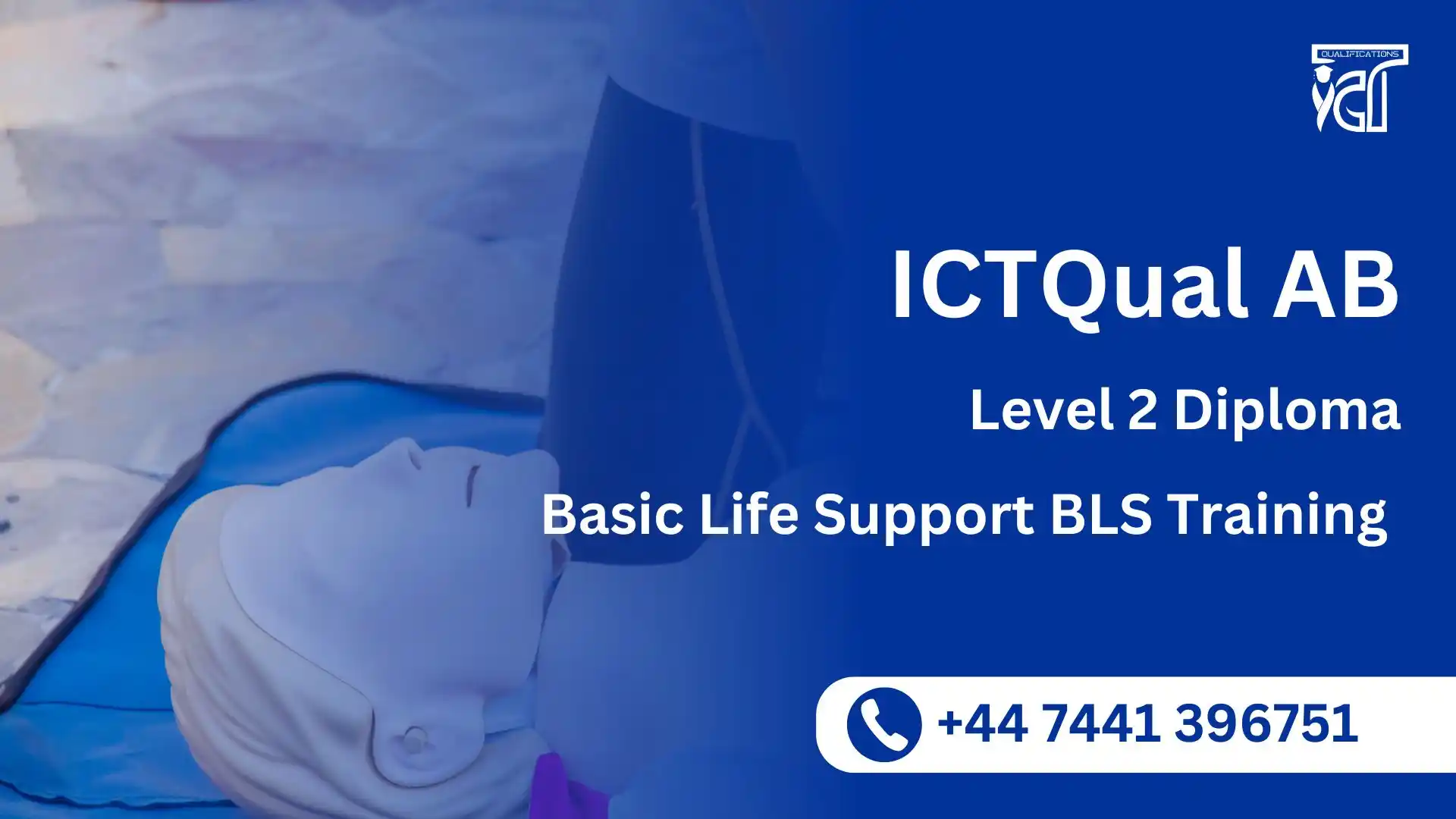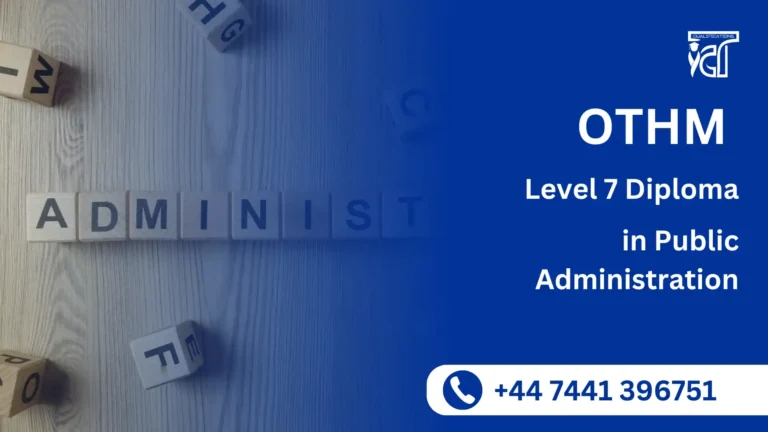The ICTQual AB Level 2 Diploma in Basic Life Support (BLS) Training provides essential knowledge and practical skills required to respond effectively in life-threatening emergencies. This foundational course covers the core principles of Cardiopulmonary Resuscitation (CPR), safe use of an Automated External Defibrillator (AED), and the correct techniques to manage choking and unconscious casualties.
Ideal for individuals in any industry, this ICTQual AB Level 2 Diploma in Basic Life Support BLS Training equips learners with the confidence and competence to act swiftly in the event of sudden cardiac arrest, respiratory failure, or other critical incidents. Whether in the workplace, at home, or in public spaces, this qualification empowers participants to make a real difference when every second counts.
ICTQual AB Level 2 Diploma in Basic Life Support BLS Training
Following are the study units of Level 2 Diploma in Basic Life Support BLS Training:
The ICTQual AB Level 2 Diploma in Basic Life Support BLS Training qualification consists of 6 units and 18 Credits for the complete qualification.
- Life Support Techniques for Medical and Trauma Cases
- Advanced CPR, AED, and Oxygen Administration
- Pre-Hospital Care and Transportation
- Neurological Emergencies: Stroke, Seizures, and Head Trauma
- Respiratory and Cardiac Emergency Interventions
- Ethical and Legal Considerations in BLS
GLH (Guided Learning Hours) and TQT (Total Qualification Time) are terms commonly used in vocational qualifications to help define the amount of time a learner is expected to spend on their studies.
1. GLH (Guided Learning Hours)
GLH refers to the number of hours a learner spends being directly taught, supervised, or supported during their course. This includes the time spent in activities such as:
- Classroom instruction
- Practical workshops
- One-on-one tutoring or mentoring sessions
- Online learning sessions with tutor support
In other words, GLH represents the time that learners are actively engaged with their instructors or learning activities.
2. TQT (Total Qualification Time)
TQT represents the total amount of time a learner is expected to invest in completing a qualification, including:
- GLH (Guided Learning Hours): Time spent on direct learning, as explained above.
- Self-Directed Learning: This includes time spent on independent study, research, assignment completion, preparation for exams, and any other work the learner does outside of direct teaching hours.
TQT is a broader measure that includes all the time required to achieve the qualification. It helps learners and employers understand the overall commitment required for the qualification.
Key Differences Between GLH and TQT:
- GLH focuses on direct learning with guidance or supervision.
- TQT includes GLH as well as independent study time and other learning-related activities.
Example:
If a qualification has a TQT of 600 hours and a GLH of 250 hours, it means the learner should spend 250 hours in direct learning (classroom, online, or tutor-led sessions) and 350 hours on independent study or research.
Here are the learning outcomes for each study unit of ICTQual AB Level 2 Diploma in Basic Life Support BLS Training:
Life Support Techniques for Medical and Trauma Cases
- Demonstrate the ability to assess and stabilise patients in medical and trauma emergencies.
- Apply appropriate life support techniques to manage airway, breathing, and circulation in critical situations.
- Identify the key differences between medical and trauma-related life-threatening conditions.
Advanced CPR, AED, and Oxygen Administration
- Perform high-quality cardiopulmonary resuscitation (CPR) on adults, children, and infants.
- Demonstrate the safe and effective use of an automated external defibrillator (AED) in cardiac arrest situations.
- Understand the principles of oxygen therapy and administer oxygen appropriately to support respiratory function.
Pre-Hospital Care and Transportation
- Assess and prioritise patient needs for stabilisation and safe transportation.
- Apply best practices for moving and handling patients to prevent further injury.
- Understand the roles and responsibilities of emergency responders in pre-hospital care settings.
Neurological Emergencies: Stroke, Seizures, and Head Trauma
- Recognise the signs and symptoms of stroke and initiate appropriate first-response interventions.
- Identify different types of seizures and provide immediate care to prevent complications.
- Apply first aid measures for head trauma, ensuring patient stability while awaiting advanced medical support.
Respiratory and Cardiac Emergency Interventions
- Identify and respond to respiratory distress, including asthma attacks, choking, and anaphylaxis.
- Understand the management of cardiac emergencies, including heart attacks and arrhythmias.
- Demonstrate the use of airway management techniques to support breathing in critical cases.
Ethical and Legal Considerations in BLS
- Understand the legal responsibilities and limitations of providing Basic Life Support.
- Apply ethical decision-making in emergency situations while respecting patient rights and consent.
- Recognise the importance of documentation and communication in emergency medical response.
Benefits of the ICTQual AB Level 2 Diploma in Basic Life Support BLS Training
Foundation in Life-Saving Skills
Learn essential techniques such as CPR, AED operation, and choking management to respond effectively in critical situations and save lives.
Internationally Recognized Certification
Receive an accredited Level 2 Diploma that adds value to your personal and professional development across multiple sectors.
Suitable for Beginners
No prior medical knowledge or qualifications required—perfect for individuals new to basic life support or looking to refresh fundamental skills.
Increased Confidence in Emergencies
Gain the knowledge and hands-on practice needed to act quickly and confidently in workplace, home, or public emergencies.
Applicable Across All Industries
Valuable for employees in education, hospitality, security, fitness, retail, and office environments, as well as for private individuals seeking emergency preparedness.
Promotes Workplace Safety Compliance
Helps organizations meet their health and safety training requirements, reducing risks and ensuring a safer working environment.
Blended Learning Approach
Combines clear theoretical guidance with practical, real-life scenario training, making it easy to apply what you learn in actual emergencies.
Empowers Personal Responsibility
Equips learners to protect not only colleagues and customers but also family members and members of the public in everyday life.
Who is the IICTQual AB Level 2 Diploma in Basic Life Support BLS Training Best Suited For?
Ideal Learner: Who Should Take This Course?
The ICTQual AB Level 2 Diploma in Basic Life Support (BLS) Training is designed for anyone who wants to learn fundamental life-saving skills and be prepared to handle emergency situations confidently. This course is especially suitable for:
Teachers, Childcare Providers, and Caregivers
Those responsible for the safety and well-being of children, elderly individuals, or vulnerable people in schools, nurseries, or home care settings.
Workplace First Aiders and Employees
Staff members in offices, factories, shops, gyms, and other environments where basic emergency response knowledge can make a critical difference.
Security Personnel and Public-Facing Staff
Security guards, retail workers, hospitality staff, and transport employees who may encounter medical emergencies during their daily duties.
General Public and Concerned Individuals
Anyone wishing to learn how to respond to accidents, choking, cardiac arrest, or sudden illnesses at home or in public areas.
Entry Requirements
Register Now
Qualification Process
Qualification Process for the ICTQual AB Level 2 Diploma in Basic Life Support BLS Training
- Self-Assessment:
Begin by evaluating your eligibility to ensure you meet the qualification requirements, including work experience, knowledge, and language proficiency. - Registration:
Complete your registration by submitting the required documents, including a scanned copy of a valid ID, and paying the registration fee. - Induction:
An assessor will conduct an induction to confirm your eligibility for the course and explain the evidence requirements. If you do not meet the criteria, your registration will be canceled, and the fee will be refunded. - Assignmnets & Evidence Submission:
Provide all assignmnets and the necessary evidence based on the assessment criteria outlined in the course. If you are unsure of the required evidence, consult with the assessor for guidance on the type and nature of evidence needed. - Feedback and Revision:
The assessor will review your submitted evidence and provide feedback. Evidence that meets the criteria will be marked as “Criteria Met,” while any gaps will be identified. You will be asked to revise and resubmit if needed. - Competence Evidence:
Submit final evidence demonstrating that all learning outcomes have been met. This evidence will be marked as “Criteria Met” by the assessor once it is satisfactory. - Internal Quality Assurance (IQA):
The Internal Quality Assurance Verifier (IQA) will review your evidence to ensure consistency, quality, and compliance with standards. - External Verification:
The IQA will submit your portfolio to ICTQUAL AB External Quality Assurance Verifiers (EQA) for final confirmation. The EQA may contact you directly to verify the authenticity of your evidence. - Certification:
Upon successful completion of all checks, ICTQUAL AB will issue your official certificate, confirming that you have attained the ICTQual AB Level 2 Diploma in Basic Life Support BLS Training.







